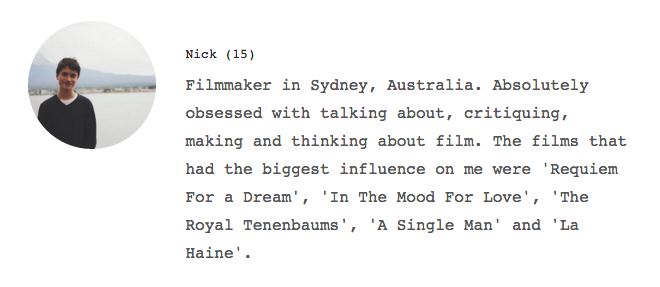review by Nick Ward
I was fortunate to see Mia Hansen-Løve’s new film, Things to Come, at this year’s Alliance Française French Film Festival. The film follows Isabelle Huppert as a philosophy teacher whose life suddenly starts to fall around her. She spends time at her country house, reading and discussing philosophy with one of her ex-students.
Isabelle Huppert has proved herself to be one of cinema’s most versatile female actresses. She always delivers a sharp wit and complexity to all of her characters, despite how despicable or confused they may be. One of my favourite performances of all time is her role in Michael Haneke’s The Piano Teacher, where she manages to convey a thousand words, with just the movement of her eyes or lips. In Things to Come she holds back so much emotion behind her eyes; putting on a cool façade in front of her students or children. The film completely relies on her performance to function, and would be a completely different film with any other actress.
Beautifully shot, on saturated, blooming, fine-grain 35mm film, allows the eclectic colour palette to seemingly pop out of the screen. The film is gorgeous to look at, painting stunning landscapes of the French countryside. Mia Hansen-Løve creates very colourful, yet realistic images, that don’t feel scripted or manufactured like many films today.
The other huge achievement is the soundtrack. Perfectly-chosen classical pieces, folk, and a-Capella music is used in perfect harmony with the images shown. The final scene was brought home by the use of a cover of the Righteous Brothers’ Unchained Melody. Hansen-Løve is an amazingly gifted filmmaker, who has a knack for storytelling through the combination of images and music.
However, when it comes to a story, this film is finished after the first half an hour. After we are introduced to the main conflict, it completely slows down and for the rest of the film we just watch people reading books and eating cheese. The only thing that kept me going, was the filmmaking, Huppert’s performance and the soundtrack. The pacing was very awkward; as very patient scenes would statically cut between each other with no breathing room or time for contemplation. This may be intentional – for the film to mainly focus on the character’s way of dealing with her situation, rather than show the situation itself.
The film’s camera movement consisted of horribly jerky shots which made the viewer completely aware of the person behind it. Rather than having a shot pan smoothly over a living room, the camera would awkwardly quiver and struggle to find it’s composition. This won’t bother most people’s experience of the film, but it will get distracting for people who tend to notice that sort of stuff.
Overall, Things to Come is a strong, quiet film, that is definitely worth a watch at this year’s Alliance Française French Film Festival.

